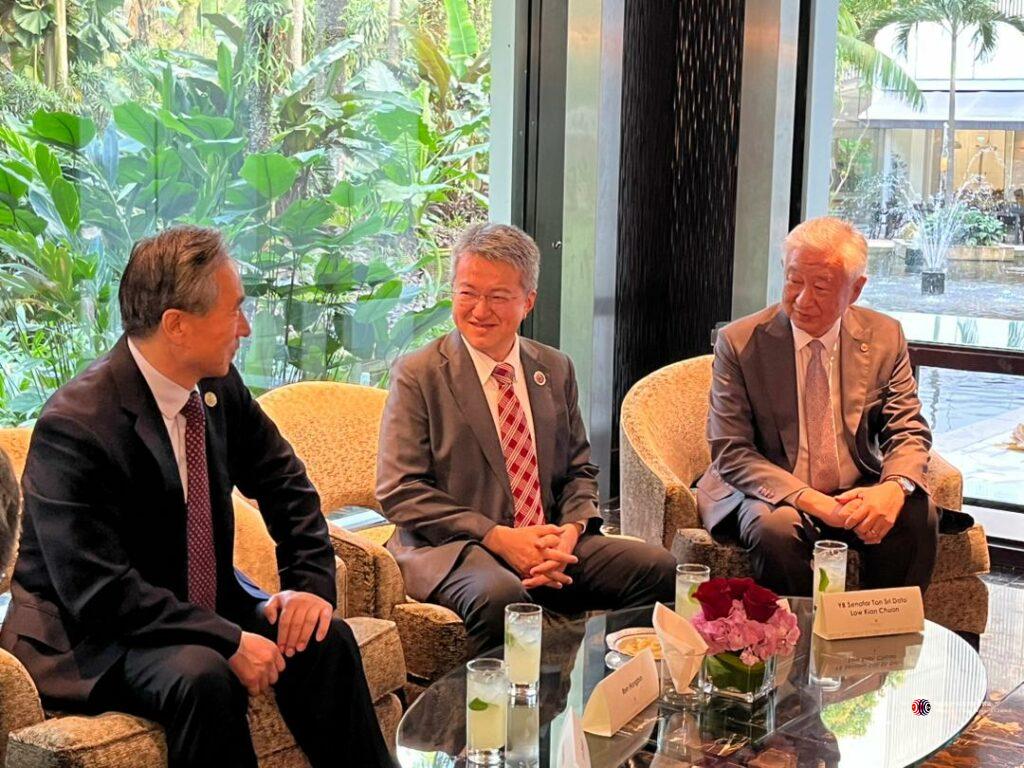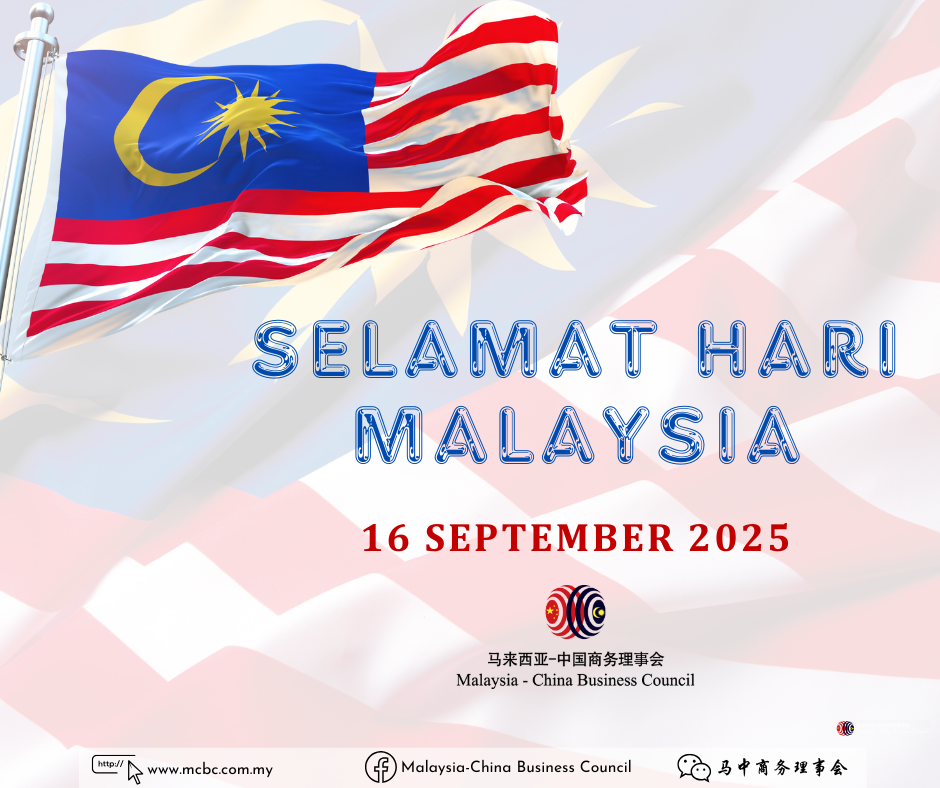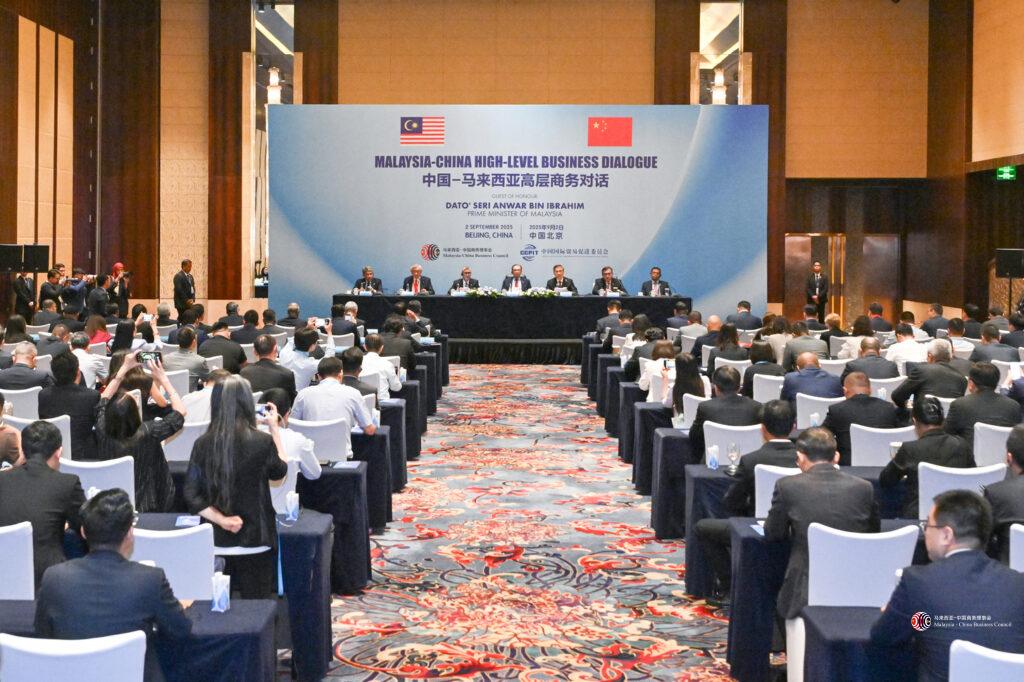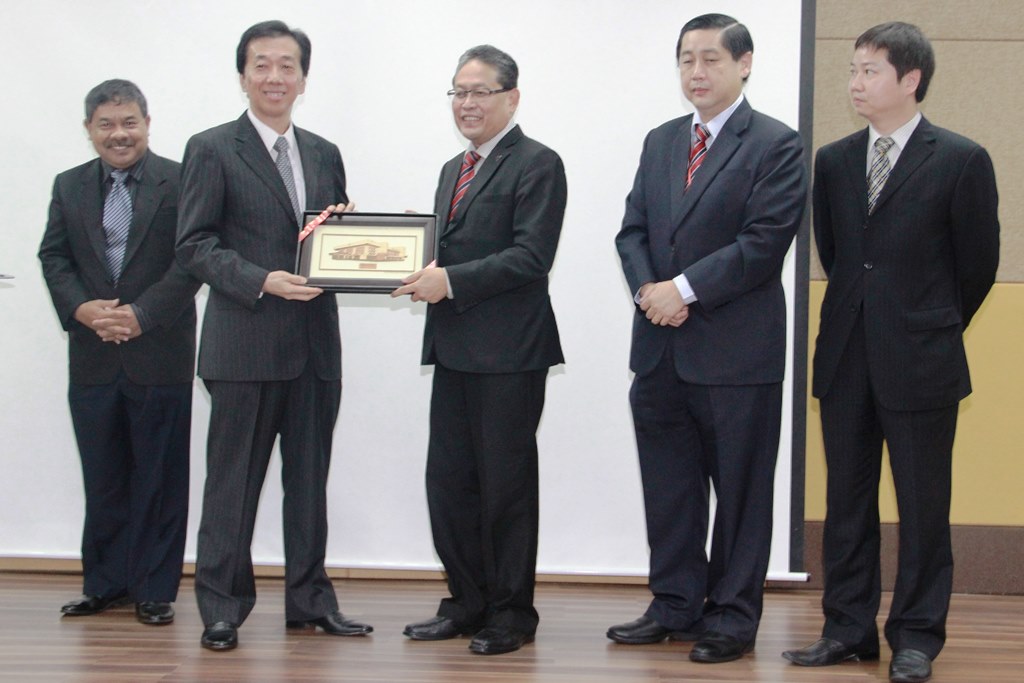
PETALING JAYA: China should be viewed as a force of stabilisation rather than apprehension, said the Prime Minister’s special envoy to China Tan Sri Ong Ka Ting.
“China has put forward a series of major initiatives to build a closer community of common destiny between China and Asean,” said Ong when opening the International Conference on Malaysia, China and the Asia-Pacific Region in the Twenty-First Century.
Organised by Universiti Malaya’s Institute of Chinese Studies and the university’s Kong Zi Institute, the conference aimed to assess the relations between Malaysia and China in the context of Asia-Pacific political economic developments after 40 years of diplomatic ties.
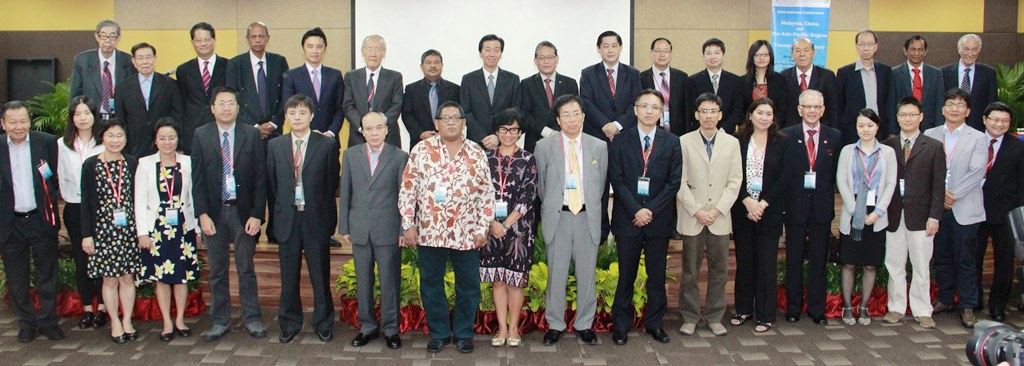
Below is the full text of opening speech delivered by Tan Sri Ong Ka Ting.
Y.Bhg. Prof Dato’ Dr Mohd Amin Jalaludin,
Vice Chancellor, University of Malaya.
Prof Dr Danny Wong Tze Ken,
Director, Institute of China Studies, University of Malaya,
Distinguished speakers,
Representatives from Embassy of China, universities and Business sector,
Academicians,
Distinguished Guests,
Ladies and Gentlemen.
Selamat Pagi and A very good morning to all of you.
First of all, I wish to thank the organizer of this international conference for inviting me to join you in this interesting yet important conference. When I was approached by Institute of China Study (ICS) to officiate this conference, I accepted it without hesitation as ICS hold a special place in my heart. The idea of setting up ICS was first mooted by the former Prime Minister, Tun Abdullah Ahmad Badawi after having visited China in 2003, the Cabinet had then decided to have it at University Malaya. I was a witness and a party participated in the decision making then.
Ladies and Gentlemen,
The six-day official visit of Malaysia’s Prime Minister YAB Dato’ Sri Mohd Najib Bin Tun Abdul Razak to China marks yet another important and historical milestone for the bilateral relationship between Malaysia and China.
I was privileged to accompany the Prime Minister during his 6-day official visit to China from 27th to 31st May this year in conjunction with the celebration of the 40th anniversary of the Establishment of Diplomatic Ties between Malaysia and China. The special state reception and hospitality given by President HE Xi Jinping, Premier Li Keqiang and other top leaders of China to our delegation is a recognition and reflection of the strong ties that both nations have maintained over the years.
During the visit, both leaders agreed to strengthen and deepen the strategic partnership in many areas including Economy, Technology, Education, Culture, Youth and Regional Cooperation by signing a new joint communique based on the foundation of the last 40 years. There was also exchange of MOUs and ideas at the Malaysia-China High Level Economic Forum.
Malaysia notably was the first ASEAN country to take the lead in establishing diplomatic ties with China in 1974 under the farsighted leadership of our second Prime Minister, Tun Hj Abdul Razak bin Hussein, the late father of our present Prime Minister. This special position has gained strong good will of China and will undoubtedly foster closer ASEAN-China ties when Malaysia becomes the ASEAN chair in 2015.
Economic and Trade Cooperation between Malaysia and China
When President HE Xi Jinping made an official visit to Malaysia in October 2013, both leaders unveiled a 5-year Economic and Trade Cooperation Program targeting USD 160 billion of bilateral trade by 2017 against the backdrop of an achievement of USD 106 billion in 2013. The major industry areas identified under this program covers agriculture, manufacturing, industrial parks, infrastructure, energy and mineral resources, information and telecommunications, tourism, engineering service, halal products, small and medium enterprises (SMEs), logistics and retailing.
Both Governments will place emphasis on respective comparative advantages, promoting complementarities, promoting social economic development and improving investment environment.
Malaysia’s Ministry of International Trade and Industry (MITI) has developed an action plan to realize the target set under the five year economic plan with some early harvests identified.
Malaysia-China Twin Industrial Parks
The establishment of Malaysia-China Kuantan Industrial Park (MCKIP) in Kuantan and its twin sister’s project, the China- Malaysia Qinzhou Industrial Park (CMQIP) in Guangxi Zhuang Autonomous Region represent the first twin industrial parks in the world. The two parks will occupy an important position in the overall joint development between Malaysia and China as well as in regional development; such cooperation representing a deeper, stronger and more lasting friendship would lead the way to better and closer ties between China and Malaysia.
Relating to this, Malaysia is China’s biggest trading partner among ASEAN countries. China has been Malaysia’s largest trading partner since 2009 and Malaysia’s biggest export market since 2011.
China Dream and Malaysia Vision 2020
China Dream and Malaysia Vision 2020 hold similar goal and aspiration.
The China dream aims at establishing herself as a strong nation, revitalization of her race, enabling well-being for its people and the pursuit of peace. To achieve that, China has set its goal of doubling its total GDP as well as the per capital income for both the urban and rural population from the base year of 2010 to 2020. According to IMF report, that goal can easily achieved as the projected GDP per capital of 2019 will touch USD 11,070 compared with the base year 2010 of USD 4,437.
Similarly, Malaysia Vision 2020 aspires to be a self-sufficient fully industrialised nation by the year 2020. The subsequent Economic Transformation Program aims at becoming a high income economy with her GDP per capital of USD 15,000 by 2020. According to IMF report, the projected GDP per capital by 2019 will reach USD 16,170.
At the current of growth, both the China Dream and Malaysian Vision 2020 will not only achieve its GDP growth target but are likely to surpass its planned GDP per capital. Being close friend and partner, China and Malaysia stand to gain from close relationship and cooperation in the field of trade and investment, tourism, social and cultural exchanges.
China diplomacy with her neighbours
Undoubtedly, the 21st century is in ASEAN and Asia-Pacific in a larger context as it remains one of the most economically vibrant regions in the world. With Malaysia being ASEAN chair in 2015, we hope to play a pivotal role in bringing the fast growing China closer to the regional dynamics of ASEAN and the wider Asia-Pacific.
Contentious regional issues remain in place but Malaysia has been acknowledged by China that we have shown a good model on the regional dispute that goes through peaceful, tactful and legitimate negotiation without politicising the issue. We hope to continue with this pragmatic approach which will lead to amiable Malaysia- China relations that can be widened to enhance the relation with other Asia-Pacific nations in addressing the common challenges and issues.
We took note of China’s latest diplomacy with emphasis on five principles that are the mutual respect for sovereignty and territorial integrity, the mutual non-aggression, non-interference on each other’s internal affairs, the equality and mutual benefit, the peaceful coexistence in developing diplomatic relations and economic and cultural exchanges with other countries
Malaysia, China and Asia Pacific
For ASEAN countries, China should be seen as a force of stabilization rather than apprehension. Prime Minister Dato’ Sri Najib has described China and the ASEAN members as interdependent good neighbours and friends, calling on the two sides to work to achieve peace, stability and prosperity in Asia.
China has put forward a series of major initiatives including a neighbourhood campaign of diplomacy featuring amity, sincerity, mutual benefit and inclusiveness (亲,诚,惠,容), built a closer “community of common destiny” between China and the Association of Southeast Asian Nations (ASEAN), and is offering to ASEAN countries to jointly construct and participate in the Silk Road economic belt and the 21st century maritime Silk Road.
It has been proven that the ancient Silk Roads were roads towards common prosperity and development that connected China with the rest of the world through trade and cultural exchanges. The ancient Silk Roads were roads of integration and mutual learning among various civilizations towards common progress. The ancient Silk Roads were roads for peace and friendship featuring benevolence, good-neighbourliness, and harmony without uniformity.
In my opinion,
First, we need to work together to create an international and regional environment of enduring peace, stability and uphold each other’s sovereignty.
Second, to build the Silk Roads for the 21st Century requires an open and inclusive mentality.
Third, the Silk Roads for the 21st Century should benefit the people in countries along the way on a win-win basis.
Fourth, to build the Silk Roads for the 21st Century requires enhanced cooperation on ecology and environment and the development of green economy.
Fifth, in building the Silk Roads for the 21st Century, we should both work hard and follow the natural course of development to seek steady progress.
Closing remark
Research institutions like the Institute of China Studies UM could also play a very important role in promoting a stronger relationship between Malaysia and China. I understand that the ICS is currently undergoing a transformation process to make it even more vibrant and visible. I would like to reiterate my support to this endeavor in the hope of seeing ICS emerging as the leading China-studies institution in Malaysia and the region. I believe with the wisdom of Prof Dato’ Amin’s leadership, ICS will be empowered to excel in the field of research on China Studies.
I am encouraged to see that the institute is able to engage some of the top scholars in the field of China Studies to take part in today’s conference. I am particularly pleased with the presence of Emeritus Professor Wang Gungwu, who is ever willing to take time off from his busy schedule to lend his support to the ICS and UM.
In closing, I would like to thank Professor Dato’ Amin,the Institute of China Studies as well as the Kongzi Institute for inviting me to officiate this conference. I would also like to commend on the generosity of Datuk Ter Leong Yap, the Executive Chairman of Sunsuria Bhd who is also an outstanding alumni of UM for his kind support to the conference. I hope more successful alumni of UM could emulate Datuk Ter in providing support to ICS and our alma mater, University of Malaya.
With that, I hereby formally declare open the International conference on Malaysia, China and the Asia Pacific Region in the 21st century.
Thank You.

